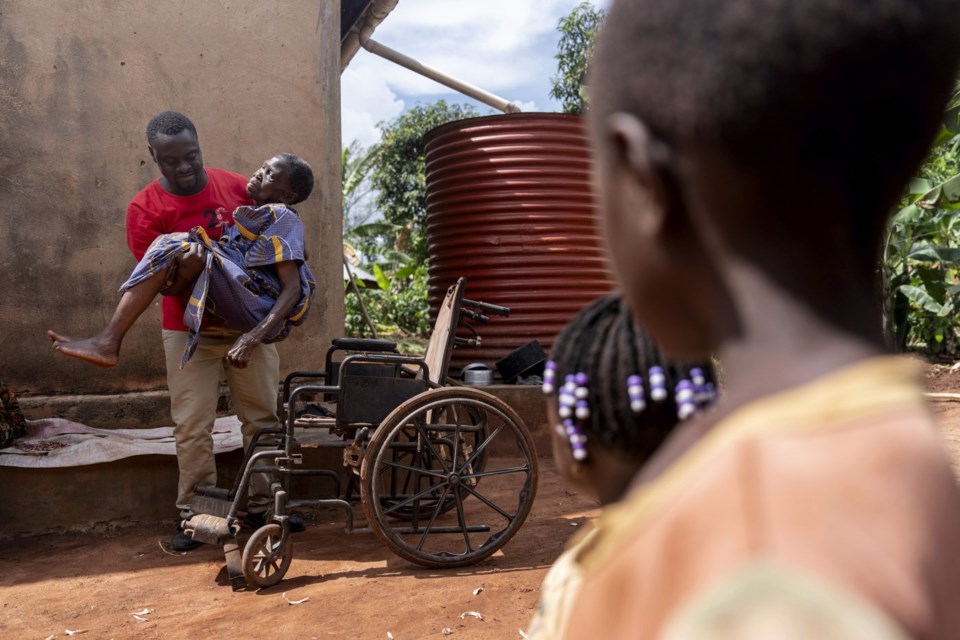MAGOGO, Uganda (AP) — Some call them the continent’s greatest natural resource, the bevy of children who account for so much of Uganda’s population.
They watch curiously from a hillside and sail across soccer fields and smile from the backs of their mothers.
There are some 25 million children in Uganda, about half the country’s population, and their numbers are a credit its successes. Vaccination drives to combat diseases such as measles, campaigns to distribute mosquito nets to reduce cases of malaria, and a host of other programs have combined to send infant and child mortality plummeting over the decades.
But the lives of Africa’s future are, in many ways, intertwined with those of its past.
The bookended age groups of children and older people suffer the highest poverty rates. They rely on one another for care. And they often live together: Among households with older people, an estimated one in six are “skipped generation,” with grandparents and grandchildren sharing a home.
Some of the children's parents died of AIDS or had to move away to find work or simply were no longer up to the task of raising a child. Where grandparents have stepped in, it can be a blessing and a curse. Many of the older people struggled to sustain themselves even before taking on another mouth to feed and school tuition to pay.
“I have no choice,” one grandmother says, “but to be a strong woman.”
The list of challenges faced by many older people here is long, their lives blanketed with financial desperation and physical challenge. Whether those hardships will be addressed by policymakers in effective ways is an open question.
What’s certain is the problems of the old today are the problems of the young tomorrow.
___
This is a documentary photo story curated by AP photo editors.
David Goldman And Matt Sedensky, The Associated Press



